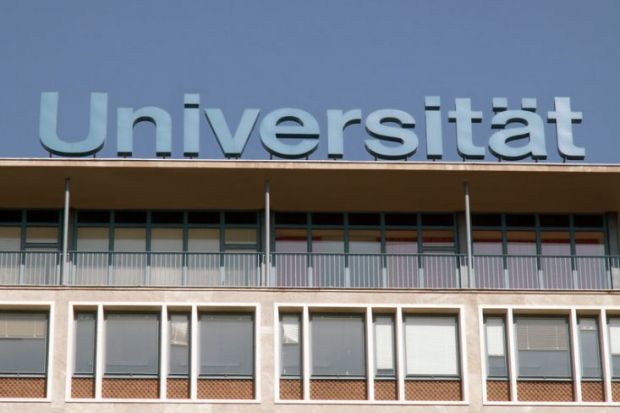Germany’s new science minister has signalled that the country’s decade-long run of substantial research budget increases may be running out of steam.
Anja Karliczek, a surprise appointment who, unlike her predecessor, does not have an academic background, also suggested that researchers needed to better explain their work to the public, in an interview marking three months in the role.
The country has ploughed money into research networks and the national research council since 2005, and budgets are set to increase by 3 per cent a year until 2020. What comes after that is still to be decided, although the current coalition government had agreed to continue this funding trajectory.
But Ms Karliczek, a former bank teller from chancellor Angela Merkel’s Christian Democratic Union, struck an austere tone in an interview with science outlet Spectrum.de; the priority was to make sure that existing money is spent “efficiently”, she said, although she did not mention specific numbers.
“When systems grow quickly in a short period of time, there comes the time to pause and consolidate,” Ms Karliczek said.
The “coming years” would not be about more funding, but about making sure that the areas of focus were correct, she added. The rate of increased funding for the ministry over the past 12 years could not go on, she said.
But there would be extra money for certain areas, such as artificial intelligence, she explained. The German government would also respond to French president Emmanuel Macron’s idea for European universities, she added.
Since Germany began its so-called Pact for Research and Innovation in 2005, it has made gains on science rivals on some measures, catching up with the UK and US in terms of researchers per capita, and overtaking the US on the proportion of gross domestic product spent on research and development.
Pure research organisations such as the Max Planck Society would have as much freedom as possible, Ms Karliczek also said in the interview, but warned that they must develop greater “interconnectedness” with business and society, and promised new forms of “accountability” for research organisations.
She also called for researchers in Germany to get out more and explain what they did to the public, worrying that current science had become too specialised for ordinary people to understand the big picture. Researchers could try to explain their work in better-read, less highbrow publications, she suggested.
Register to continue
Why register?
- Registration is free and only takes a moment
- Once registered, you can read 3 articles a month
- Sign up for our newsletter
Subscribe
Or subscribe for unlimited access to:
- Unlimited access to news, views, insights & reviews
- Digital editions
- Digital access to THE’s university and college rankings analysis
Already registered or a current subscriber? Login








